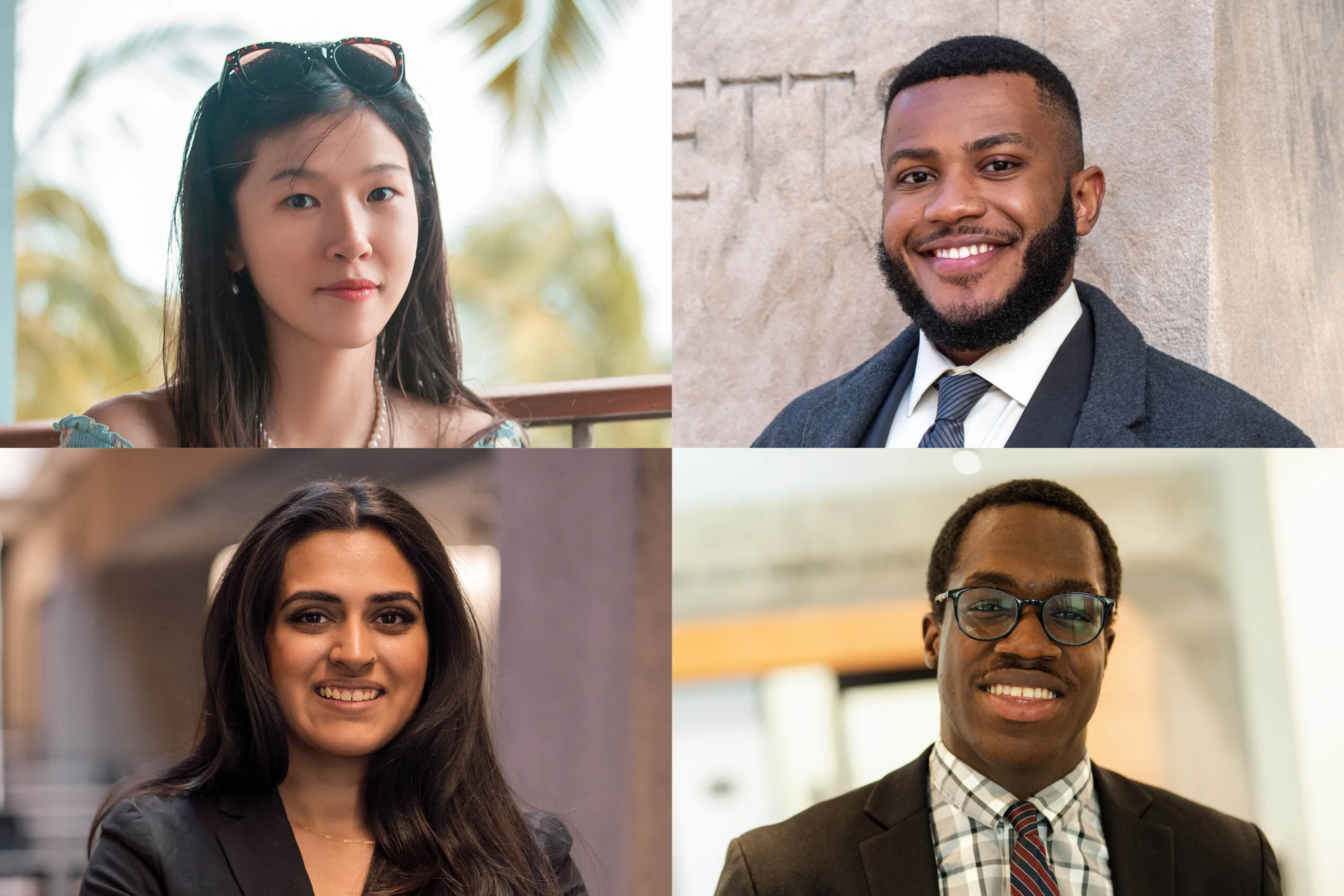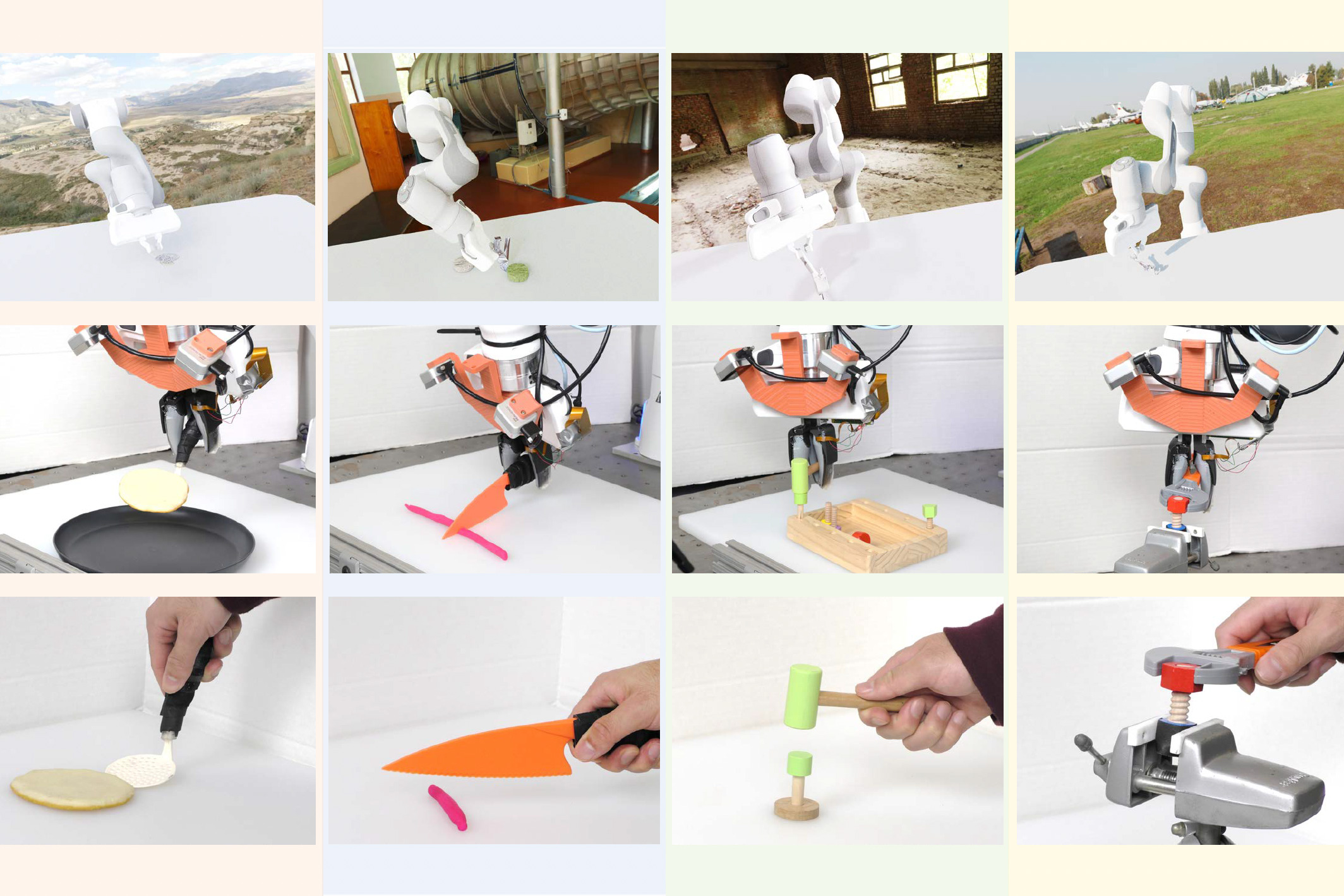Four exceptional students from MIT have been honored as 2025 Rhodes Scholars, with plans to embark on fully funded postgraduate studies at Oxford University next fall. The distinguished recipients include Yiming Chen ’24, Wilhem Hector, Anushka Nair, and David Oluigbo. Chen and Oluigbo represent the U.S. Rhodes winners, while Chen is recognized for the Rhodes’ China constituency and Hector as the first Haitian citizen awarded the Global Rhodes Scholarship.
These scholars received guidance and support from Associate Dean Kim Benard and the Dedicated Fellowships team within Career Advising and Professional Development, along with mentorship from the Presidential Committee on Distinguished Fellowships.
“It’s incredibly inspiring to engage with our talented students, who have achieved so much at MIT and are driven by their desire to address significant global challenges,” remarked Professor Nancy Kanwisher, co-chair of the committee alongside Professor Tom Levenson. “Their hard work has allowed them to articulate their vision clearly, passionately, and confidently. It’s thrilling to witness multiple recognitions among these outstanding finalists and winners this year.”
Yiming Chen ’24
Hailing from Beijing, Yiming Chen earned her place as one of four Rhodes China Scholars on September 28. At Oxford, Chen will pursue graduate studies in engineering science, aiming to enhance AI safety and reliability in clinical workflows. In 2024, she graduated from MIT with a Bachelor of Science in mathematics and computer science, alongside a Master of Engineering in computer science, focusing on machine learning applications in healthcare.
Chen’s master’s research revolved around medical imaging at CSAIL, collaborating with IBM Research to create a neural framework for clinical-grade lumen segmentation in intravascular ultrasound. She showcased her findings at the MICCAI conference. At Cleanlab, an MIT-founded startup, she helped create an open-source library ensuring dataset integrity for vision tasks.
Beyond academics, Chen served as a teaching assistant, receiving a teaching excellence award. Her diverse interests also led her to perform as president of the MIT Chinese Music Ensemble and explore musical synergies at the MIT Chamber Music Society, even performing at the United Nations. Her involvement extended to Asymptones a capella, the MIT Ring Committee, and various clubs on campus.
Wilhem Hector
Wilhem Hector, originally from Port-au-Prince, Haiti, and studying mechanical engineering, was awarded the Global Rhodes Scholarship on November 1. As the first Haitian Rhodes Scholar, Hector will pursue a master’s in energy systems, along with an education master’s focusing on digital and social change, aspiring to revolutionize Haiti’s renewable energy landscape and enhance practical learning in the national curriculum.
His journey began with research at the MIT Howland Lab, where he explored the uncertainties inherent in wind power production. Hector also played a crucial role in launching the MIT Renewable Energy Clinic. His internships, including roles at Radia Inc. and DTU Wind Energy Systems, contributed to advancements in computational wind farm modeling.
Outside the classroom, Hector leads the Hector Foundation, which provides educational resources to Haitian youth, raising over $80,000 for initiatives like Project Manus, Haiti’s first open-use engineering makerspace. His impactful service work has earned him several awards from the MIT PKG Center.
Anushka Nair
Anushka Nair, from Portland, Oregon, is on track to graduate with BS and MEng degrees in computer science and engineering, focusing on economics and AI. She plans to pursue a DPhil in social data science at the Oxford Internet Institute, striving to develop ethical AI technologies to tackle significant societal issues, starting with misinformation.
Under the mentorship of Professor David Rand, Nair is developing LLM-powered fact-checking tools capable of identifying nuanced misinformation. She has contributed to research projects at MIT and previously explored autonomous vehicle navigation at Stanford while also interning at the UN and Tesla, where she assisted in the development of energy technologies.
A leader in outreach, Nair has served as President of both the MIT Society of Women Engineers and MIT and Harvard Women in AI, creating mentoring programs aimed at empowering young women in STEM fields.
David Oluigbo
David Oluigbo, a senior from Washington, is majoring in artificial intelligence and decision-making, with a minor in brain and cognitive sciences. He will pursue an MSc in applied digital health at Oxford, followed by an MSc in modeling for global health, aiming to integrate AI into medical solutions for low-income countries as a future physician-scientist.
Engaged in neural and brain research at MIT, Oluigbo’s contributions have led to publications and presentations at major conferences. His summer internship at the NIH focused on developing machine learning models for neuroendocrine tumor detection, garnering him first authorship on a significant conference paper.
Active outside academics, Oluigbo serves as an EMT and is involved with various organizations on campus, including the Undergraduate Association and MIT Running Club.
Photo credit & article inspired by: Massachusetts Institute of Technology



